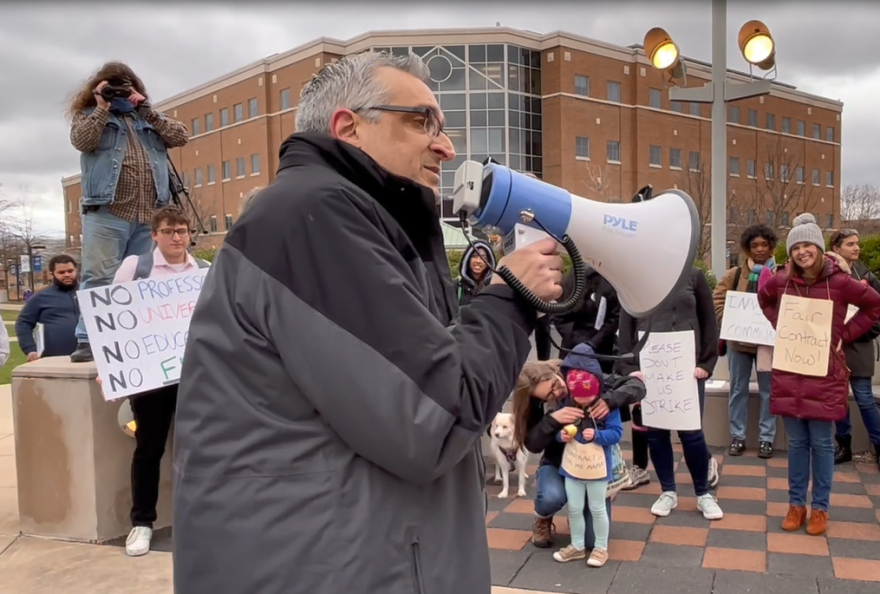The president of the UIS faculty union said she hopes the university's bargaining team will be prepared to do what she called “‘real work” when the two sides meet with a mediator on Friday.
Kristi Barnwell is president of UIS United Faculty, a chapter of the University Professionals of Illinois. She said the two sides have a long way to go before reaching agreement. Other sessions are set throughout April.
Barnwell said the two sides have been bargaining since March of 21. They have had more than 20 sessions.
“ We began our negotiations with the mediator in February. They have been slow. They have been inefficient. And I think I speak for my bargaining team, when I say they've been painful,” Barnwell said. “We find ourselves spending a lot of time in the bargaining room, doing a lot of waiting, waiting for proposals waiting for responses and waiting for things that will meet us halfway, meet us somewhere in the middle. And we're not finding that to be successful.”
About 50 faculty members and students on Thursday rallied on campus with picket signs to protest the lack of a contract.
Chancellor Karen Whitney in a statement wrote, “I continue to believe that we can reach a fair and fiscally responsible multi-year collective bargaining agreement that is in the best interest of our entire campus community without disruption to teaching and learning.”
The two sides have reached informal agreement on several workload issues, excluding one that Whitney said the university believes is related to compensation.
Whitney wrote that the two sides reached tentative agreement on a range of non-economic issues, including language on sabbaticals and modified duties during times of personal challenge. "However, we are now addressing some of the more challenging issues, which relate to compensation and faculty workload. In the meantime, we are open to ongoing informal conversations in order to ensure a productive session."
“The University’s goal in these negotiations has been to balance an intent to fairly compensate our valued and respected teaching colleagues for their important contributions, while also ensuring progress to reduce the University’s $3.7 million FY21 structural deficit and achieve financial stability.. Those dual priorities have become particularly challenging in the face of declining enrollment and related fiscal challenges. We are continuing to implement an aggressive five-year deficit reduction plan that includes strategies to grow enrollment and control expenses.”
Barnwell said, “We could easily make serious progress on a wide variety of issues. If only the university would treat us as partners in the bargaining room, and treat us as equal stakeholders in the future of this campus. But again, and again, we're told there's not money. This is too much. We're asking for too much. You know, and I think from our side, from the union side of things, this is really a matter of not respecting faculty, as long term as a long term investment in the future of our students.”
She said faculty members want wage hikes to cover the cost of living, unlike to the zero to 2 percent increases they have been receiving the last few years.
Meanwhile, she said “The university has failed to keep up and address longevity issues. They don't value longevity and expertise in faculty commitment to this university. So we have faculty who've been here for 10-15 years, who are earning the same or less than people who've just been hired. Because the university is not conscious about its decision making when it comes to salaries in new in investing in its faculty long term.”’
Whitney said, “We have negotiating sessions with the federal mediator scheduled weekly through late April. The University is open to scheduling additional sessions as needed as we believe much can be accomplished through further dialogue and discussion.
“When I joined UIS as interim chancellor in 2020, I stated a clear goal of completing these contract negotiations before the end of my service with the University this June. I continue to believe that we can reach a fair and fiscally responsible multiyear contract agreement without disruption to teaching and learning.”






